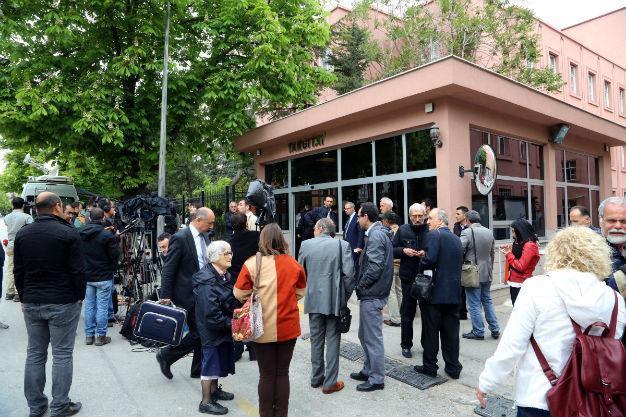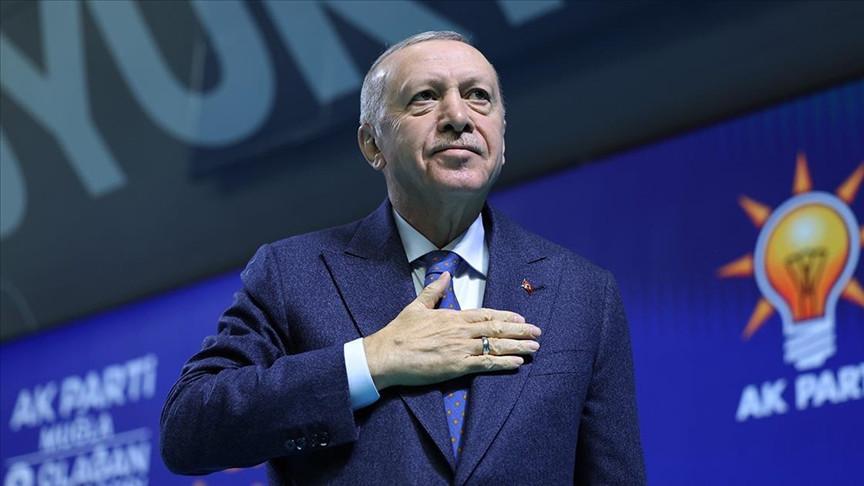Turkey’s Ergenekon plot case overturned by top court of appeals
ANKARA

DHA photo
Turkey’s top court of appeals has overturned convictions in the Ergenekon coup plot trial, considered one of the most significant legal battles in recent Turkish history which lasted nearly a decade, ruling that the “Ergenekon Terror Organization,” the target of the allegations, did not exist at all.The Supreme Court of Appeals ruled that the local court’s recognition of the “Ergenekon Terror Organization” was not felicitous because it was not known when and by whom the “Ergenekon Terror Organization” was established. “Its crimes and hierarchic structure was not exposed” and “its leader was not evident,” a senior judge said, while reading out the summary of the 231-page reasoned judgment at the final hearing of the appeal case on April 21.
The appeals court said the local court had failed to show “legal and actual links” between an armed attack at the Council of State and the Ergenekon case.
In May 2006, an assailant named Alparslan Arslan carried out an armed attack at the Council of State’s Second Office, killing a judge and wounding four others.
The court also ruled that the testimonies of the suspects in the case were given under unhealthy conditions and unjust time limits.
Some of the verdicts in the case were not even linked to the allegations in the indictment, while some intelligence members testified in the case as witnesses without the permission of the National Intelligence Agency (MİT), it said, adding that some documents which included state secrets were inspected by security forces during the inspections.
Evidence was produced over illegal wiretappings, it added.
Turkey’s former military chief, İlker Başbuğ, had been accused of being part of this alleged “deep state” organization, however the appeals court determined Başbuğ’s objection to his trial at the Supreme Council -the name of the Constitutional Court whilst trying presidents, prime ministers, cabinet members and high ranking soldiers, judges and prosecutors - was justified.
“Some people have passed away before seeing this verdict of acquittal,” said İlkay Sezer, Başbuğ’s lawyer, after the court decision, questioning the verdict which singled out his client.
“This case has collapsed,” said another of Başbuğ’s lawyers, projecting that the former top general would not be tried.
Sabriye Okkır, the wife of businessman Kuddusi Okkır, who was accused of financing a coup attempt and died in 2008, only one year after being arrested in the Ergenekon case, questioned what the decision would bring her.
“Will the dead come back? Many people lost their lives,” she said, demanding the restoration of her late husband’s honor.
Main opposition Republican People’s Party (CHP) leader Kemal Kılıçdaroğlu praised the court’s decision.
“The decision revealed how right in our criticisms we were in the past. There are still judges in this country,” Kılıçdaroğlu said April 21.
“The judges with courage, who believe in the rule of law, are clearing the way for Turkey,” he added.
Özgür Özel, a CHP deputy leader, said President Recep Tayyip Erdoğan owes an apology for saying at the time that he was a volunteer “prosecutor” of the case.
Özel recalled that Mehmet Haberal, Mustafa Balbay, Dursun Çiçek and Tuncay Özkan, who had been elected as CHP lawmakers in previous elections, all served time in jail over the Ergenekon allegations.
The Ergenekon probe dates back to 2007 when a cache of explosives was found at the home of a former military officer, who was tied by state prosecutors to what they claimed was a much bigger conspiracy.
The Ergenekon case was then filed seven years ago against 274 people, including military officers, politicians and journalists, over an alleged conspiracy to overthrow the ruling Justice and Development Party (AKP) government.
In April 2014, a Turkish court for the first time officially described the alleged Ergenekon network behind the attempt to topple the Turkish government as an “armed terrorist organization” which was also accused of operating as a “deep state” within the Turkish Armed Forces.
All 236 suspects in the separate “Balyoz” (Sledgehammer coup plot case were also acquitted on March 31 after the case’s prosecutor argued digital data in the files submitted as evidence in the case was “fake” and did not constitute evidence.
Sledgehammer was an alleged military coup plot targeting the AKP drafted in 2003. The military was alleged to have planned drastic measures to foment unrest in the country in order to remove the AKP from power.
The measures included bombing two major mosques in Istanbul, an assault on a military museum by people disguised as religious extremists and the raising of tension with Greece through an attack on a Turkish plane that was to be blamed on the Aegean neighbor.
An Istanbul court sentenced 331 of the 365 suspects to prison terms on Sept. 21, 2012, while 34 suspects were acquitted.
Almost all judges and prosecutors who took part in the Ergenekon and Balyoz cases and a number of police officers involved in the process have faced accusations that they were acting under commands by Fethullah Gülen, the U.S.-based Islamic scholar blamed by Erdoğan and the AKP for organizing a plot against government.
Zekeriya Öz, the initiator of the Ergenekon case, is currently at large with an arrest warrant for Gülen links.
Relations between the AKP and Gülenists deteriorated following the December 2013 graft probes which focused on four then-cabinet ministers and Turkish-Iranian businessman Reza Zarrab, who was arrested in the U.S. last month for breaking the Tehran embargo and fraud.
The case of the ministers was dropped as the AKP accused the “Fetullahist Terror Organization (FETÖ)/ Parallel State Structure (PDY)” for illegal wiretapping and founding a “parallel” organization intending to topple the government.
















